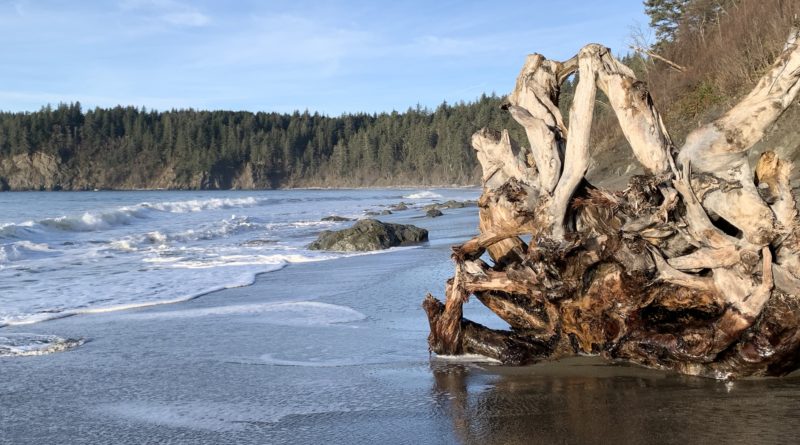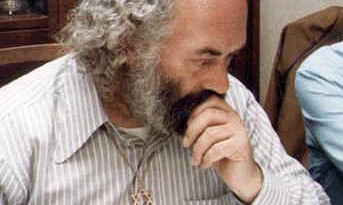God and Nature
Third Beach on the Quileute Reservation in Washington is a beautiful place that really deserves a much more beautiful name. But maybe the boring name helps preserve its isolation, so that could be a good thing. If there were more people there, I might not have had the spiritual experience I did have in my splendid isolation.
Third Beach is only accessible by a hiking trail, 2km each way, or by boat. Leaving the parking area, the trail is mostly flat, wide, in good condition, with towering second growth trees lined up on both sides of the trail. Approaching the beach there’s a short but steep descent, which was slick and muddy on that day. I got to the beach, and found that I was going to do a much shorter run than I had originally planned: a landslide had brought mud and debris down to the water and there was no way I was going to get around it without going swimming, and I didn’t feel like trying to scramble over the mud and debris. So instead of a longer run, I decided I would just stroll on the beach I had available and pause to say my morning prayers.
As soon as I started saying my prayers, I felt a deep connection not only with the beautiful place where I was sitting, but also with God, and surprisingly, with the native Americans who were the custodians of this place. My prayers felt pagan, in a good way – connected to God-in-nature, connected to my ancestors. Saying my prayers in the ancient language of my ancestors, Hebrew, as I imagined the Quileute Indians coming to this place and saying their prayers in the ancient language of their ancestors. I felt a sense of kinship to their imagined pagan religion.
Words I say every day jumped out at me as I recited my prayers from heart.
“Ashrei yoshvei veiteicha… ” Happy are those who sit in God’s house. The word ashrei has a connection to the word osher, which is wealth; so ashrei implies a happiness with having plenty, and I did feel that kind of happiness, and I strongly felt that sitting there on the beach, my eyes on the crashing breakers, rugged shoreline, trees, that I was sitting in God’s house. What a beautiful house.
I said my prayers slowly, with way better than usual concentration and connection, and found I had a deeply spiritual experience.
As I finished my prayers and jogged back to my car, I was startled to realize that not only had I felt the presence of God in nature – that’s so common it’s a cliché – but that my prayers actually deepened my appreciation of and feeling of connection to that natural beauty.
I often tell students that remembering a beautiful spot in nature can help them shift gears and feel God’s presence in their prayers at home or in the synagogue. But what I didn’t understand until that moment was how prayer can also help us have a deeper and more connected experience in nature. And that perhaps is the secret of our ancient religion’s pagan roots. Prayer isn’t a substitute for the feeling of closeness to God we can achieve in nature – it’s a partner and amplifier to that feeling of closeness.


